Sensors in Service of Public Health
Evan Thomas (Portland State University)
Examples of Interventions in Rwanda
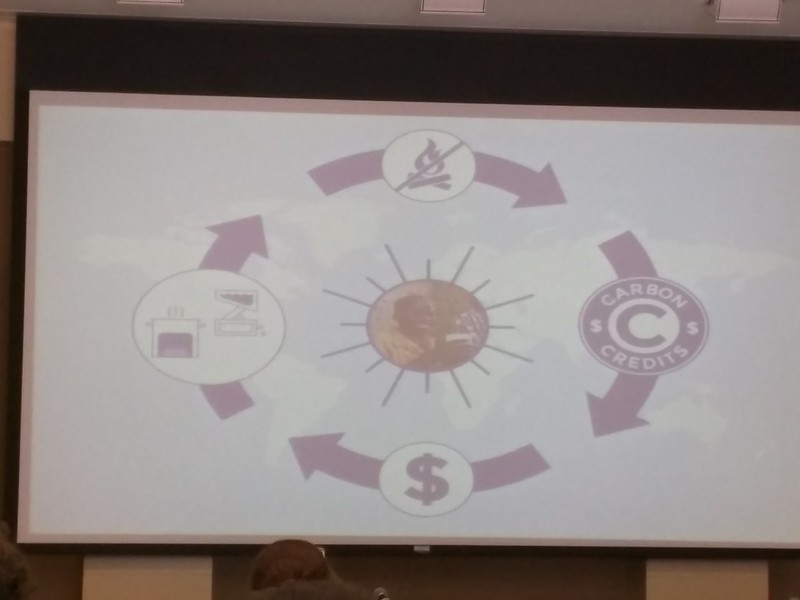
Example1. Sensor of water filter use, looking at impact on diarrhea
- By using sensors, we can actually know the use and behaviors, which is different from surveys- there are huge discrepancy between actual sensor data and survey result
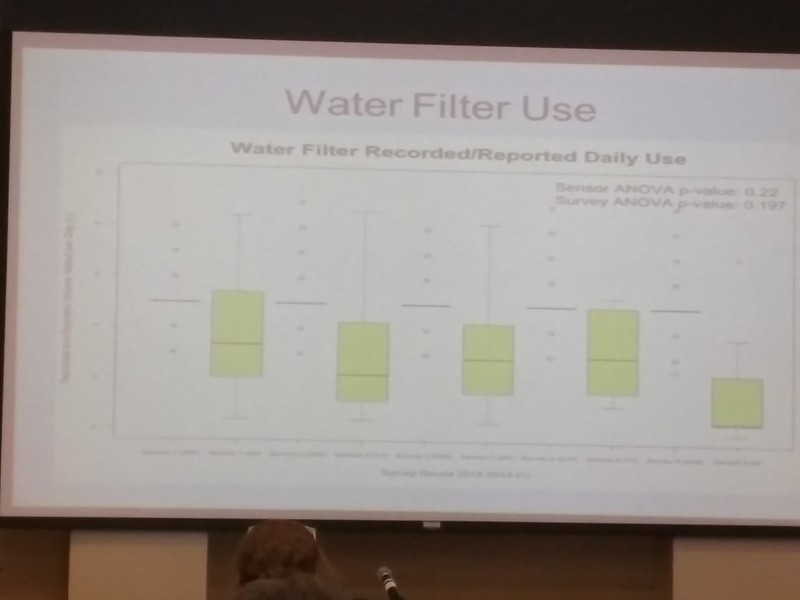
- Seeing inside the households: How consistently are they using water filter?
ex. replied they are using filters but reality is only once in 2 weeks
- Water filter use between open and closed arms > when people knows there are sensors, they behave differently
Example 2. Pump in Rwanda
- In the past, staffs were looking for broken pumps vs using sensors and based on data sending people to fix pumps
- Cost effective? yes
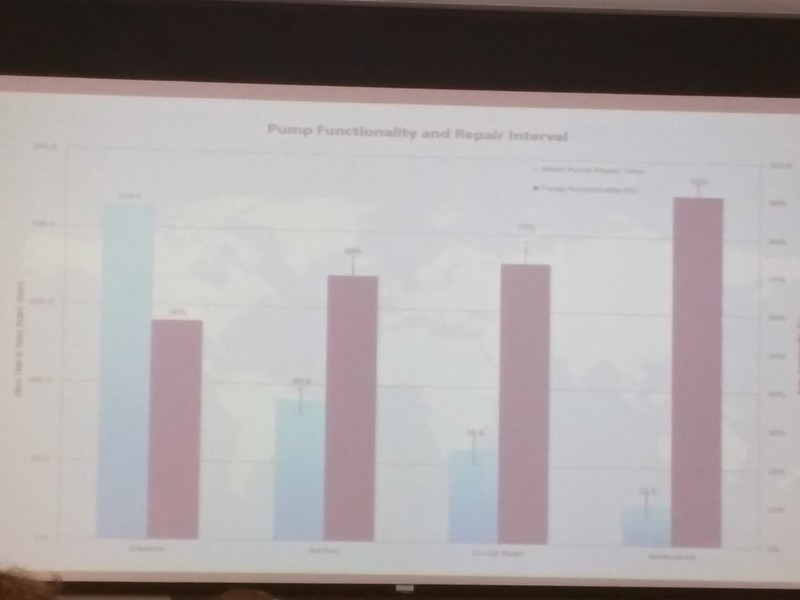
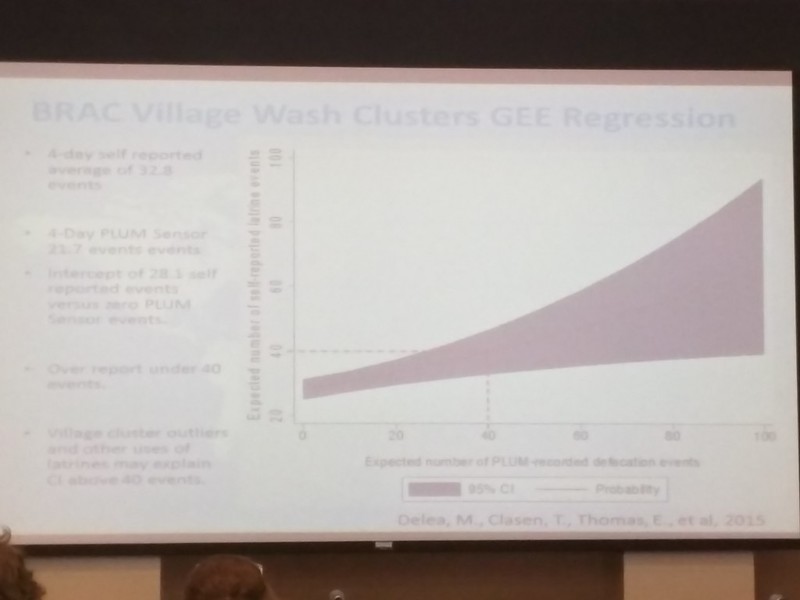
- This picture does not mean those children has clean water!
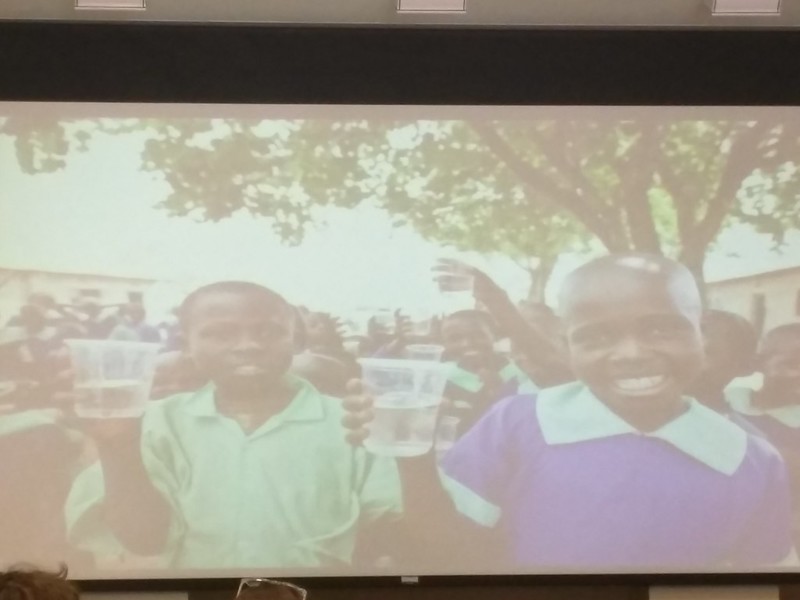
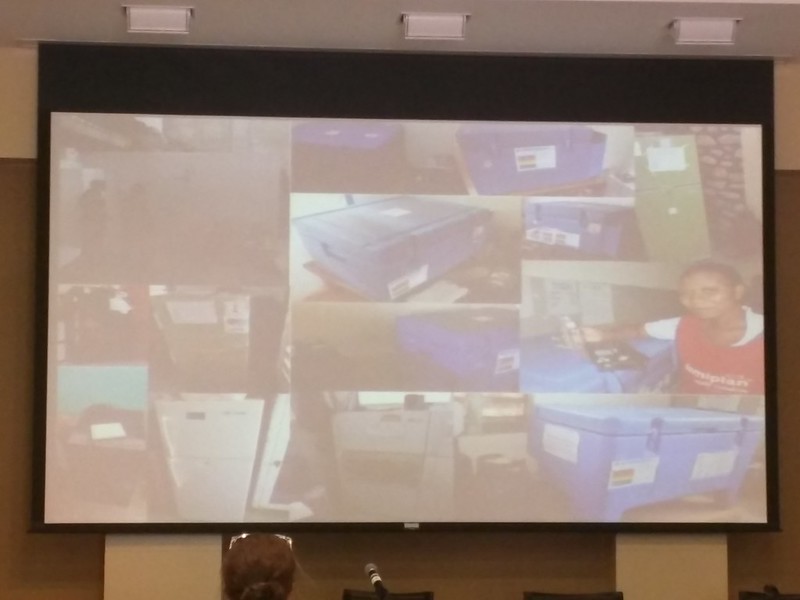
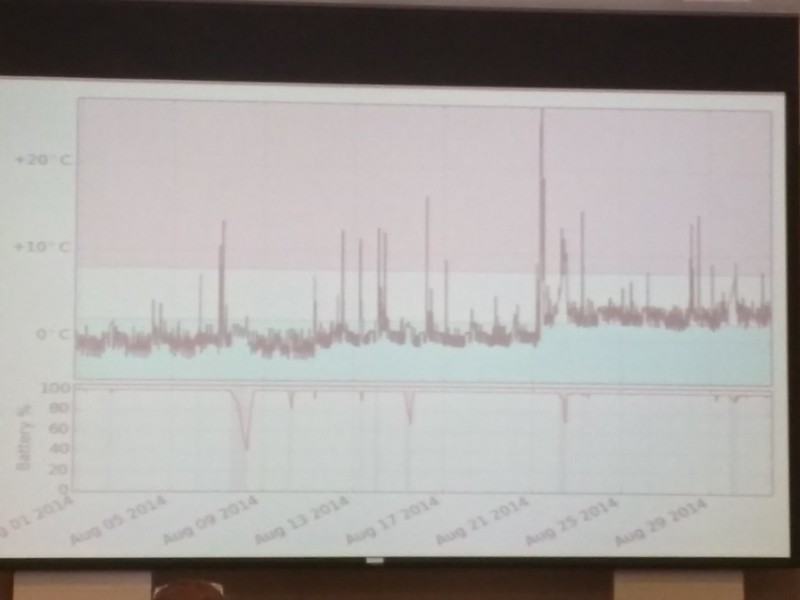
- Challenge - need fixed line power or Internet signal
Evan Thomas (Portland State University)
Examples of Interventions in Rwanda

Example1. Sensor of water filter use, looking at impact on diarrhea
- By using sensors, we can actually know the use and behaviors, which is different from surveys- there are huge discrepancy between actual sensor data and survey result

- Seeing inside the households: How consistently are they using water filter?
ex. replied they are using filters but reality is only once in 2 weeks
- Water filter use between open and closed arms > when people knows there are sensors, they behave differently
Example 2. Pump in Rwanda
- In the past, staffs were looking for broken pumps vs using sensors and based on data sending people to fix pumps
- Cost effective? yes


- This picture does not mean those children has clean water!

Building Resilient Health Systems Through Remote Monitoring and Analytics
Martin Lukac (Nexleaf Analytics)
- 20 million children vaccinated
- Vaccines are too hot or too cold, because fridge is malfunctioning
- "Why not replace fridges in poorest countries?"
- No good data about fridges' performance
- Sensors to send out alerts when temperature goes wrong, dashboard
- Testing with few hundred fridges, on average 50% of the time, too hot or too cold
- New fridges are failing as much as older ones > replacing old fridges are not going to solve the problem
- Implemented SMS alert > improved 10x
- Vaccine fridges can call for help
- Data-driven procurement decisions
- Resource allocation: fridge, parts, technicians, workflows
- Greater vaccine coverage at same costs, more kids vaccinated
- IoT for developing countries -> focus on communities, groundwork for resilient communities
- Instead of taking things built for developed countries and bringing it to developing countries, build with developing countries


Bridging the Environmental Data Divide
Sean McDonald (Frontline SMS)
- Challenge - need fixed line power or Internet signal
- DustDuino -> OpenDustMap: measuring air quality by public transportation, testing in Brazil
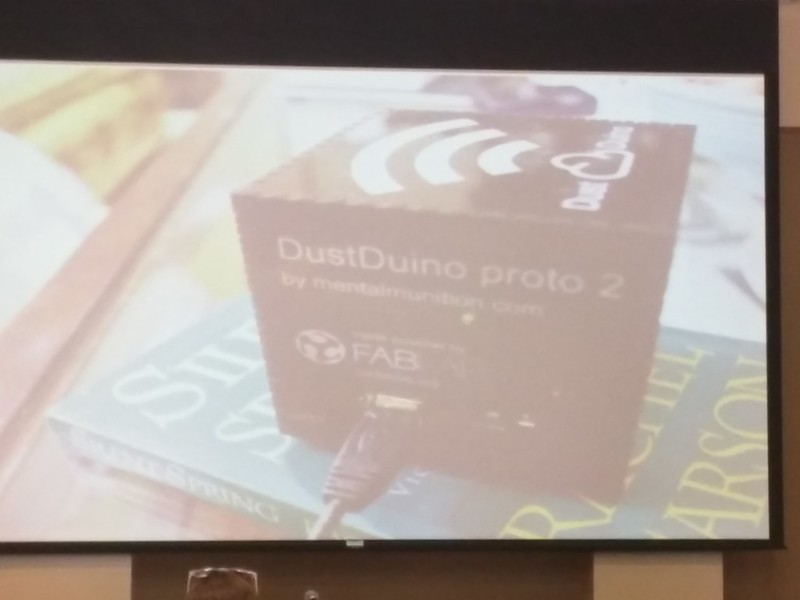
- Resilience is an organizing challenge -> data is not output, it defines the process, need meaningful interaction
- Every decision about data is a decision about power
- Communities are the hard part
- Organizing communities begins by meeting people
- Less than 40% of people in the world are not online
- 7.2 billion active mobile subscribers, 3.6 billion unique users - SMS is the only way to reach them all
- Digital tech makes them better informed than 5 years ago
- People in the country with Ebola -> getting 200 messages saying "wash your hands" :(
- Context is important
- Resilience is not one message away! Relationships building is the work.
- No extra time in disaster- embed context and significance into routing and processing of the data in the system.
- We cannot assume homogeneity. Resilience approaches must be multi-channel.
Message powered healthcare: Hospital in Malau doubled the number of patients they can treat
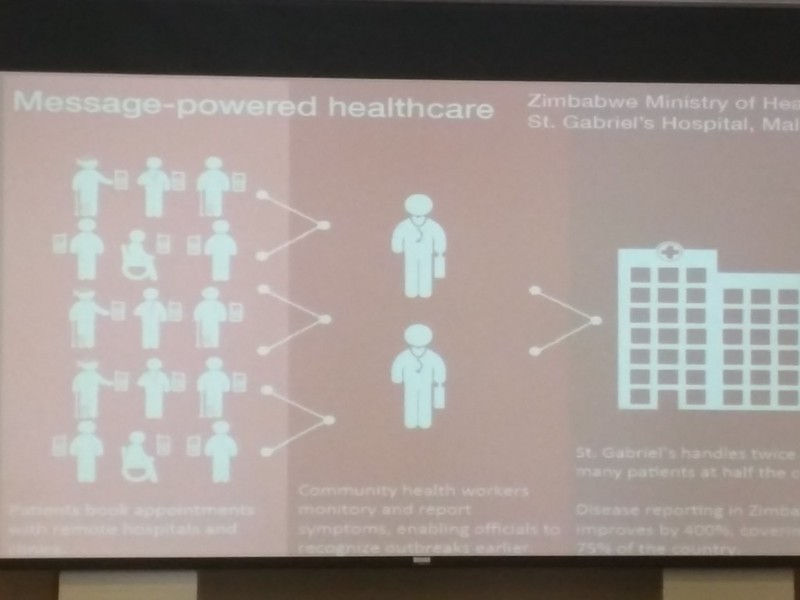
Message powered education
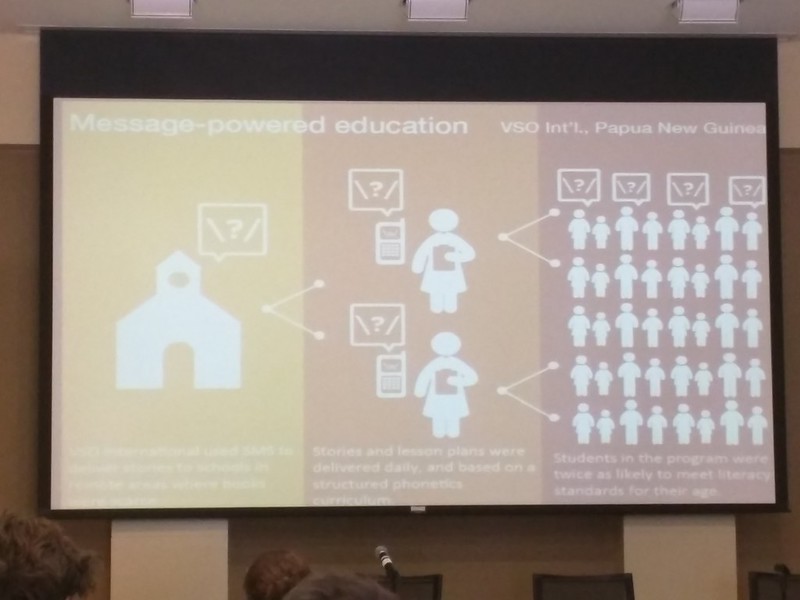
Bolivia Mercy Corps, Networked land titling
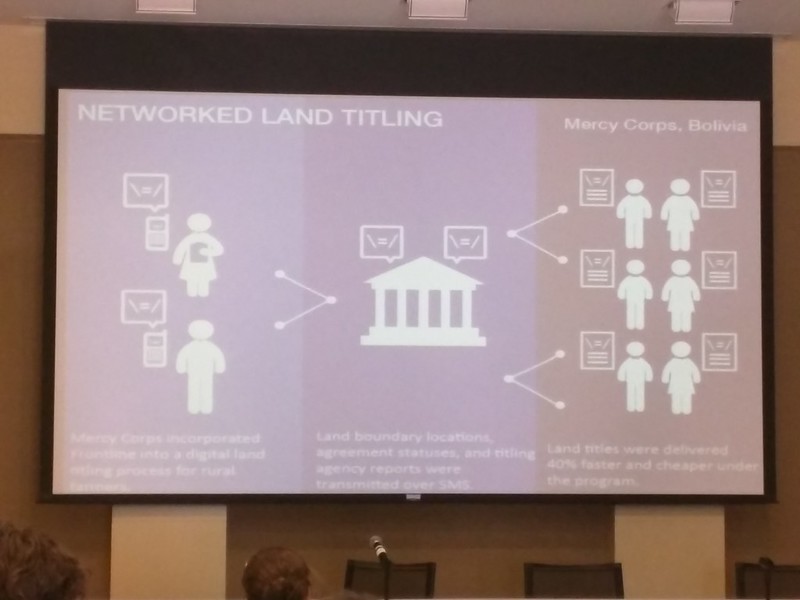
Interactive Radio
- Radio reaches the most number of people during disasters
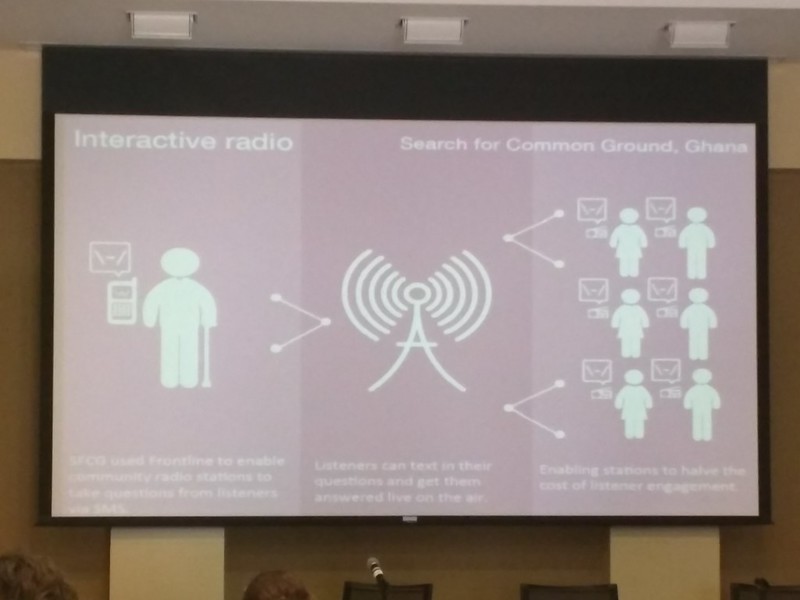
Message-powered banking
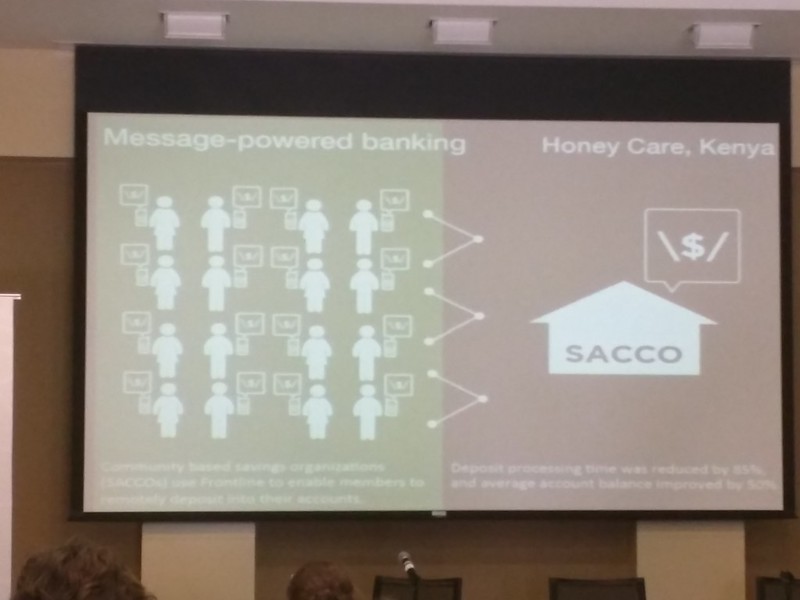
Disclaimer: The opinions expressed here are my own, and do not reflect those of my employer. -Fumi Yamazaki
- Resilience is an organizing challenge -> data is not output, it defines the process, need meaningful interaction
- Every decision about data is a decision about power
- Communities are the hard part
- Organizing communities begins by meeting people
- Less than 40% of people in the world are not online
- 7.2 billion active mobile subscribers, 3.6 billion unique users - SMS is the only way to reach them all
- Digital tech makes them better informed than 5 years ago
- People in the country with Ebola -> getting 200 messages saying "wash your hands" :(
- Context is important
- Resilience is not one message away! Relationships building is the work.
- No extra time in disaster- embed context and significance into routing and processing of the data in the system.
- We cannot assume homogeneity. Resilience approaches must be multi-channel.
Message powered healthcare: Hospital in Malau doubled the number of patients they can treat

Message powered education

Bolivia Mercy Corps, Networked land titling

Interactive Radio
- Radio reaches the most number of people during disasters

Message-powered banking

0 件のコメント:
コメントを投稿